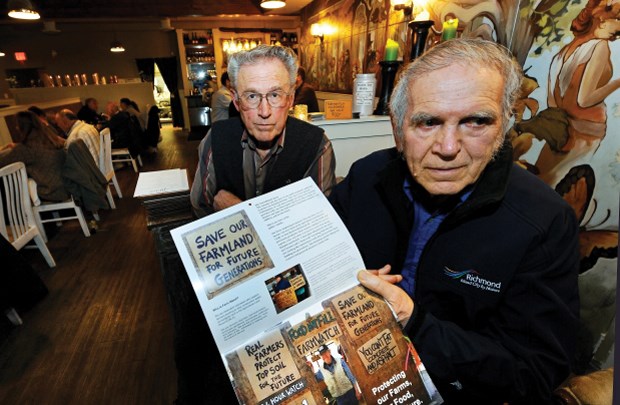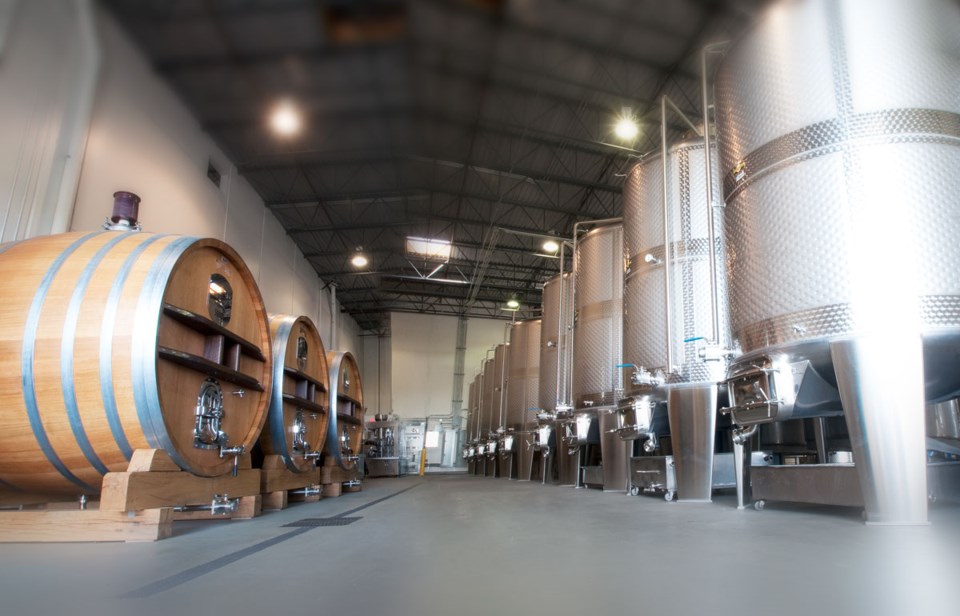Another battle in the war surrounding the Agricultural Land Reserve is brewing.
Richmond city councillors are asking the B.C. Ministry of Agriculture to clarify its position on agri-tourism guidelines that may leave the door open for the proliferation of industrial scale wineries and breweries being developed on farms in the municipality.
“We have now, suddenly, a number of properties, or people, inquiring about putting breweries and wineries on farmland — but they don’t have enough land to produce their product,” said Coun. Harold Steves.
According to a City of Richmond planning report to a council committee this week, the inquiries stem from a ministry discussion paper, last year, which sought to determine what constitutes an “agri-tourism” activity that can be allowed on the Agricultural Land Reserve (provincially protected farmland).
In Richmond, such activities may likely be breweries and wineries, said Steves.
The committee, comprised of all of those on council, unanimously agreed agri-tourism should be “subordinate to the active farm operation.” In other words, the main business of a farm should be farming.
As such, councillors contend 50 per cent of what is produced at wineries and breweries should have to be made from food product grown on the farm.
Steves said there are rumours that the ministry may allow otherwise.

He said, without clear guidelines, new industrial-scale facilities could pop up all over Richmond without any regard for its 5,000 hectares of protected farmland.
Among other demands from council is for the ministry to provide detailed criteria for maximum building area and site coverage, as well as guidelines for parking spaces, at retail farm operations.
Richmond presently has two wineries, Canada Berries Enterprises and Lulu Island Winery, which use both local and imported fruit.
Steves said he isn’t sure how much local fruit either winery uses.
“No one’s been able to check because there’s no enforcement from the Agricultural Land Commission,” he said.
Steves contends agri-tourism facilities that don’t use local food should be relegated to industrial-zoned land.
“We probably have 100 (ALR) parcels of 2-5 acres, that you could end up with an industrial site all along the road. They would be permitted to not grow anything,” said Steves.
“If it’s solely a winery or distillery, with no farming attached to it, then that’s not really a farm use,” said Steves.
Earlier this month, the provincial government appointed Kim Grout as the new CEO of the land commission, which oversees the protection of the ALR. Grout is the former CAO of the City of Pitt Meadows and has a degree in agriculture.
Critics of the provincial Liberal government, such as Steves, contend the ALC has been eroded and underfunded under its watch. Many contend the firing of former chair/CEO, Richard Bullock, was politically motivated due to Bullock’s outspokenness on farmland being lost throughout the province.
New powers to protect soil
Last week, city council approved new powers for bylaw enforcement officers, in order to enforce the city’s soil protection bylaws.
The city has long fought against illegal dumping on farms, which ruins the viability of future farming,
The new powers grant officers the ability to issue municipal tickets for dumping, as opposed to the city being forced to pursue violations through provincial court prosecution.
Steves called the new powers a “compromise” considering he wanted a full-time staff position to assess soil violations in the city, in the absence of adequate land commission monitoring.
The city has a “soil watch” program; in 2014 it received 26 complaints of illegal dumping.



